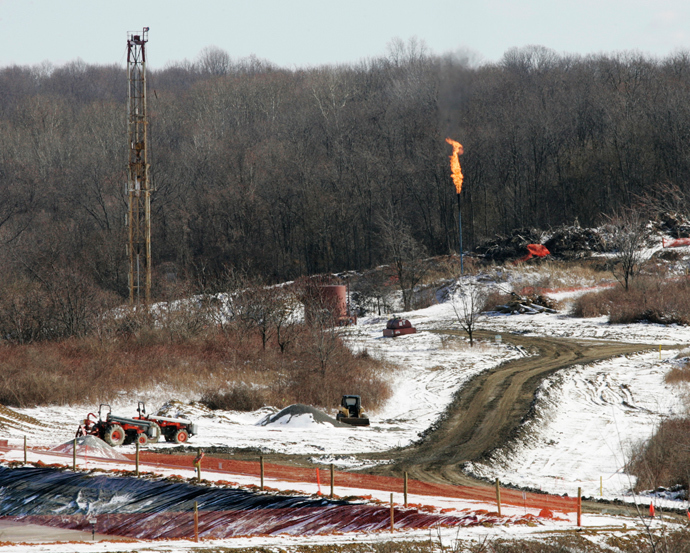
AFP Photo / Robyn Beck
The IEA says the US will overtake Russia as the biggest oil producer next year, citing the ‘shale revolution’ that has reshaped the global energy market. Some experts believe this will sober Russia and put a lid on talk of a ‘commodity curse’.
"With output of more than 10 million barrels per day for the last two quarters, its highest in decades, the nation is set to become the largest non OPEC liquids producer by the second quarter of 2014, overtaking Russia. And that's not even counting biofuels and refinery gains," the International Energy Agency (IEA) said on Friday.
Growing production in America will drive non OPEC supply up by an average of 1.7 million barrels per day in 2014, to peak at 1.9 million in the second quarter, the highest annual growth since the 1970s, the IEA said.
The study by the West’s energy watchdog comes just a day after US government data showed that the country managed to significantly cut its imports in September, leaving the world’s top oil importer ranking to China.
Konstantin Simonov, general director at the National Energy Security Fund, also believes that sooner or later America will leave Russia behind in terms of oil production. “The US will overtake Russia, maybe not the next year, but it will happen at some point,” Simonov told RT.
The US has always been a big energy producer, with the shale exploration now helping to boost the industry. “However, there would be nothing disastrous for Russia; it’ll just stop our nonsensical talk about a “commodity curse”. The US is showing a perfect example that a country can have both strong - manufacturing and commodity sector,” Simonov explained.
Right now Russia needs to put its roots deeper into Asian markets, where consumption is growing very fast, the expert concluded.
Shale the real Revolutionary?
While many experts claim a shale revolution has reshaped the world market, an interview with head of Royal Dutch Shell Peter Voser cast a shadow on its reputation over the weekend. In his interview with the Financial Times Voser said he was disappointed with the company’s investment in shale. He cited a $2.1billion damage to its shale portfolio. Overall, the company invested $24billion into unconventional oil and gas in North America.
“Unconventionals did not exactly play out as planned,” Mr Voser said.
Shell’s boss said the costs were due to the failure of a containment dome, a piece of equipment designed to catch any oil leaking on to the seabed, which was damaged during testing last year. “That was a big disappointment to me personally,” he said, adding that the company still didn’t know “if we’ll go back [into Alaskan waters] in 2014 or 2015”.
In case of increased shale exploration in the US “I’d rather use the term “boom”, not “revolution”, Grigory Birg, a co-director of the analytical department at Investcafe, told RT. “It’s not going to completely reshape the market, and a lot of companies are quickly abandoning developing shale. Such countries as Poland, Spain, the UK and Ukraine have most recently cut their shale exploration for a number of concerns that include ecological and cost issues,” Birg explained.


No comments:
Post a Comment
yes